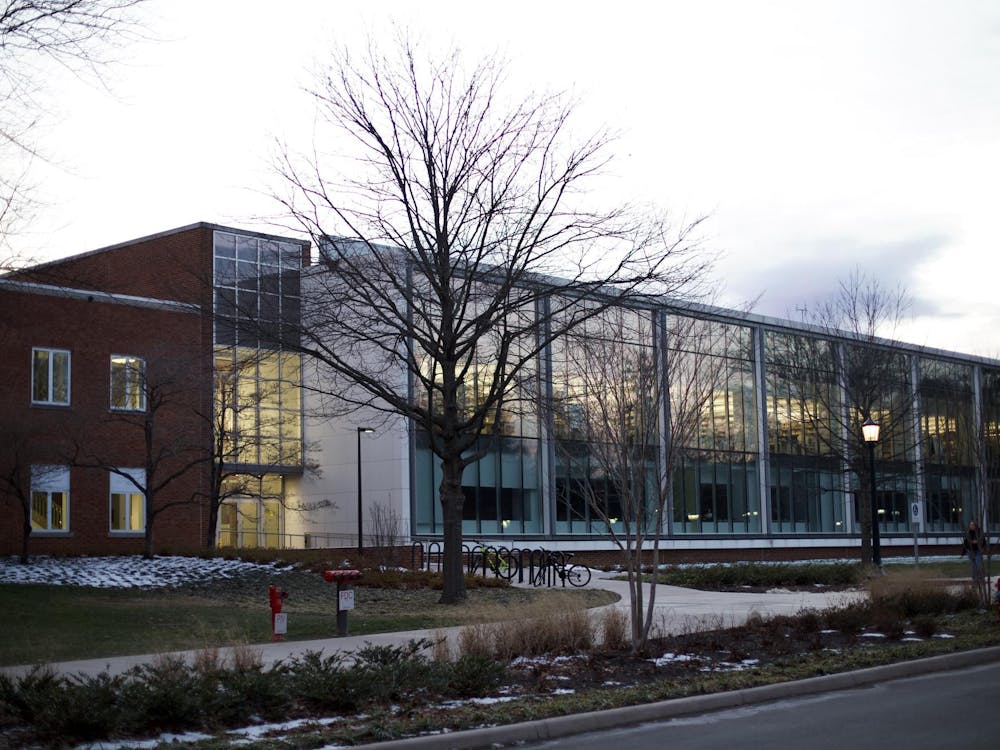There are currently fewer than two months until Election Day, and given the nature of the year’s race, this Nov. 8 seems to take on more significance than most elections. Nevertheless, it might be naive to assume voter turnout will rise, considering the United States has one of the lowest voter turnout rates among advanced Western democracies. Likewise, younger Americans unsurprisingly see lower turnout rates than other age demographics which negatively impacts American voter turnout on the whole. Yet this trend can be countered, at least at the University, by installing a polling station in a centralized place on Grounds.
Last week, I saw a young lady who was holding a sign outside of Newcomb Hall that read “Register Here to Vote on Grounds.” Although I had already registered, I knew this sign was misleading because there is in fact no place on Central Grounds where students can go to cast their votes this November. If a student lives on Grounds, then that student must cast his ballot at University Hall which, while technically on Grounds, is a hassle to reach. It is asking a lot of first-years who lack easy access to cars to journey an entire mile out of their way to vote in an election. We should be actively encouraging first-years to participate in this activity — especially since it’s already short on participation.
Students who live off-Grounds face a similar dilemma. Those who live near the Corner must vote at Venable Elementary School while those who live near Jefferson Park Avenue must vote at Buford Middle School, which are each more than a mile away from Central Grounds. Although it is more likely for upperclassmen to have access to cars, it is still a substantial burden to journey so far out of one’s way to partake in an activity that college-aged students already fail to do in large numbers.
Instead of requiring both underclassmen and upperclassmen to travel to a school which they would otherwise never travel to, this dilemma could be better resolved if all students could vote at a centralized place on Grounds. A pragmatic location for this might be the Newcomb Hall Conference Rooms on the third floor because, regardless of a student’s year or major, it is likely for students to pass by this location at some point in your daily routine. Even if a student does not pass by Newcomb Hall routinely, holding voting here as opposed to a random public school that is not easily accessible is substantially less burdensome. Likewise, while churches and schools are often chosen because of their accessibility to the disabled, Newcomb Hall has similar accommodations since it is one of the most travelled to places on Grounds. And although some might say that Newcomb Hall is too crowded to be used as a polling station, the third floor is often vacant, especially during the daytime. While establishing a centralized polling location on Grounds might not solve the voter turnout dilemma entirely, it certainly serves as an optimal place to start.
Of course, polling locations are determined not by one’s status as a student but rather by residence. Since University residences are technically in Albemarle County, the county board has the authority to make Newcomb Hall a polling place instead of University Hall. This could be controversial since it would affect non-University residents in the Albemarle precinct. But it would primarily affect students, and since non-students likely have greater access to automobiles, the location change will have but a minute impact.
The location of polling stations available to University students merely serves to exacerbate the voter turnout dilemma. If we are to address the embarrassing low voter turnout trend in the United States, then it is crucial to facilitate the voting process in any way we can. While it will take an attitudinal shift in American society to attack this trend effectively, making it just slightly easier for college students to engage in the political process is a step that we must take.
Jesse Berman is an Opinion columnist for The Cavalier Daily. He can be reached at j.berman@cavalierdaily.com.





